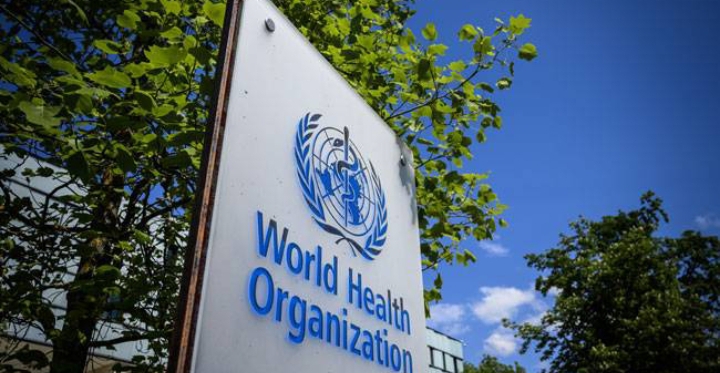Health
WHO Council calls for the equitable expansion of genomics – See details

By Adeleye Kunle
The World Health Organization’s Science Council of experts has called for the equitable expansion of genomics for global health, arguing that it is not ethically or scientifically justifiable for less-resourced countries to gain access to such technologies after rich countries.
The call was made in its first report on accelerating access to genomics for global health, which explained that genomics uses methods from biochemistry, genetics, and molecular biology to understand and use biological information in DNA and RNA, with benefits for medicine and public health – particularly during the COVID-19 pandemic – as well as agriculture, biological research, and other fields.
The report advocated for greater access to genomic technologies, particularly in low- and middle-income countries (LMICs), by addressing funding, laboratory infrastructure, materials, and highly skilled personnel shortages.
While the costs of establishing and expanding genomic technologies are decreasing, making them more accessible to all countries, they can and should be reduced further.
“A variety of tools have been developed to make genomic technologies more affordable for LMICs, including tiered pricing, sharing of intellectual property rights for low-cost versions, and cross-subsidisation, in which profits from one area are used to fund another.”
“Genomic technologies are driving some of the most ground-breaking research happening today,” said WHO Chief Scientist Dr Soumya Swaminathan. However, the benefits of these tools will not be fully realized until they are deployed globally. Only through equity can science achieve its full potential and improve health for all people everywhere.
“By convening and coordinating the world’s leading minds, as we do through our Science Council, WHO acts as a global analysis engine to address the world’s most pressing health challenges.”
The WHO Director-General Dr Tedros Adhanom Ghebreyesus established the Science Council in April 2021, comprised of nine leading scientists and public health experts from around the world, to advise him on high-priority issues and advances in science and technology that could directly improve global health.
The Science Council chose genomics as the focus of its first study because of the significant implications for public health; its many successful applications in combating infectious diseases, cancers, and other chronic diseases; and the new opportunities for implementing expensive technologies, even in low-income countries.
The Council’s Chair, Nobel Laureate and former Director of the National Institutes of Health, Professor Harold Varmus, stated: “It is already clear that genomics can make enormous contributions to human health, from surveying populations for infectious agents, such as the virus that causes COVID-19, to predicting and treating a wide range of diseases, such as cancers and developmental disorders.” Attention to equity in the deployment of these technologies is critical for realizing the enormous potential benefits to human health.”
The report’s recommendations address four themes to encourage the adoption or expanded use of genomics: advocacy, implementation, collaboration, and related ethical, legal, and social issues:
Genomic advocacy is required to persuade governments, commercial and non-commercial organizations, academic institutions, and others of the medical, scientific, and economic benefits of genomic technologies.
Overcoming implementation challenges will necessitate local planning, financing, expanded training of key personnel, and low-cost provision of instruments, materials, and computational infrastructure.
Government ministries, funding agencies, and academic and industrial scientific organizations should work together to develop plans for using genomics and to build and expand technical capacity. They should also consider pooling resources through regional programs if possible.
Effective oversight, combined with national and international rules and standards, is critical to promoting the ethical, legal, equitable, and responsible use of genomic information.
The report also suggests that WHO establish a Genomics Committee to carry out the recommendations and monitor their implementation across all four major areas. The Genomics Committee has been tasked with convening commercial organizations to develop and implement strategies for making their products and technologies affordable in LMICs.
The report comes on the heels of the WHO’s 10-year strategy for pathogen genomic surveillance.
Genomic surveillance has been critical in the global COVID-19 response, with countries such as South Africa able to make critical contributions in detecting variants due to their capabilities in this area. According to recent WHO data, the percentage of countries capable of conducting genomic surveillance increased from 54% to 68% between March 2021 and January 2022, owing to significant investments made during the COVID-19 pandemic.
The post WHO Council urges equitable genomics expansion appeared first on Track News
-

 Business3 days ago
Business3 days agoAn Open Appeal To The Gov. Of Bayelsa State, Sen. Diri Douye Regarding The Removal Of My Prominent Billboard On Azikoro Road, Near Ekeki Park.
-

 News4 days ago
News4 days agoPolice have arrested three suspects who offered a pregnant woman N30 million to terminate her six-month-old fetus for a ritual in Niger State
-

 Gist3 days ago
Gist3 days agoA housewife in Bauchi has stabbed her husband to death during a dispute over child custody
-

 Niger Delta3 days ago
Niger Delta3 days agoProphetic Warning: Primate Ayodele Cautions NDDC DG Ogbuku on Imminent Betrayal
-

 Politics3 days ago
Politics3 days agoTension in Osun: LG Workers Stand Their Ground, Defy APC’s Resumption Order
-

 Politics7 days ago
Politics7 days agoBreaking News: The Federal High Court has ordered PDP to go ahead with its South-South Zonal Congress
-

 Crime3 days ago
Crime3 days agoClose Call: Baby Kidnapping Attempt Blocked by Vigilant Residents
-

 World News22 hours ago
World News22 hours agoUS Military Policy Shift: Transgender Soldiers Face Removal Under Trump




